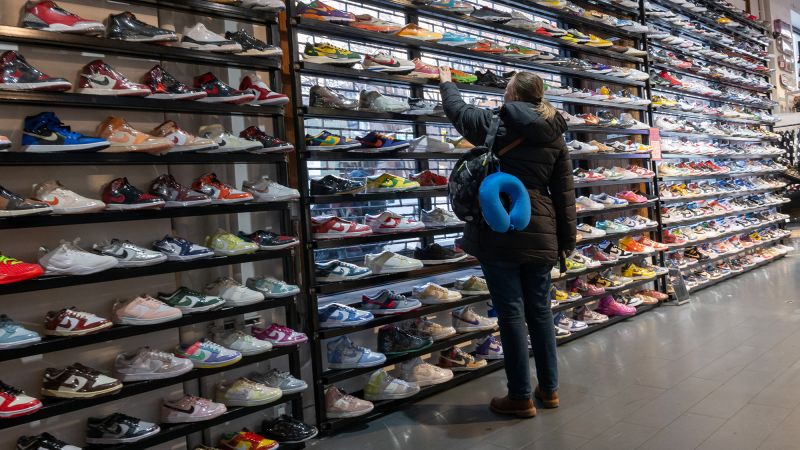In 2018, former-President Donald Trump imposed new tariffs on a range of Chinese-made goods, such as baseball caps, luggage, and shoes, resulting in increased prices for American consumers. Tiffany Zarfas Williams, owner of the Luggage Shop of Lubbock in Texas, highlighted the impact, stating that prices for items like suitcases and carry-ons had surged significantly post-tariffs. She mentioned that passing these price hikes to consumers was a challenging necessity to cover the increased costs imposed by brand name distributors.
Recently, after a multi-year review, the Biden administration opted to maintain the tariffs, with a raise in the rate for a small portion of affected imports, which include products like electrical vehicles and semiconductors made in China. Despite the inflation, which had surged earlier in the Biden administration, stabilizing despite the tariffs being in effect, concerns over high prices persist among consumers and have the potential to influence Biden’s reelection campaign against Trump.
Footwear and apparel trade groups have expressed that the tariffs on Chinese goods have significantly fueled the rise in prices, with companies like Deer Stags, known for providing comfortable footwear to well-known retailers, facing challenges due to increased costs post-tariffs. Rick Muskat, the company’s president, highlighted the dilemma of either absorbing the tariff costs or passing them on to consumers, ultimately leading to price adjustments across their product line.
Similarly, Missouri-based Cap America, a company that embroiders caps for promotional products, highlighted the impact of the tariffs on their operations, with some manufacturers shifting their production to Vietnam and Bangladesh in response to the tariffs. Phil Page, the company’s chairman, expressed that the tariffs have merely redistributed manufacturing without significant cost benefits to American consumers.
Despite the efforts to protect US industries from China’s trade practices through tariffs, concerns remain over the impact on American consumers. Economists have established a direct correlation between tariffs and rising prices, with substantial costs being borne by the average American household. Trade groups have emphasized the undeniable contribution of tariffs to inflation, particularly in industries like apparel, footwear, and travel goods.
In a bid to alleviate these challenges, major shoe brands urged the Biden administration to lift the tariffs, emphasizing the potential savings that could be passed on to consumers. However, the administration decided to maintain the duties as part of a broader strategy to strengthen US supply chains and shield American consumers and workers from unfair trade practices.
Overall, the decision to uphold the tariffs underscores the administration’s commitment to addressing longstanding trade imbalances with China, albeit at the expense of higher prices for American consumers. Despite the potential political implications, the tariffs are viewed as a necessary measure to rebalance trade dynamics and protect domestic industries.











